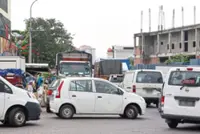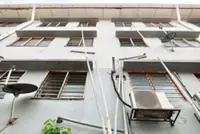INACTIVITY at a construction site next to Pasar Harian Selayang Kuala Lumpur, where a half-built integrated halal poultry abattoir sat languishing for over a year, has led the public to believe that the project has been abandoned.
The abattoir was first mooted in 2015 to centralise poultry slaughtering processes and provide a more systematic, hygienic and halal-certified solution to especially supply dressed chicken for traders operating at Kuala Lumpur City Hall (DBKL)-owned markets.





